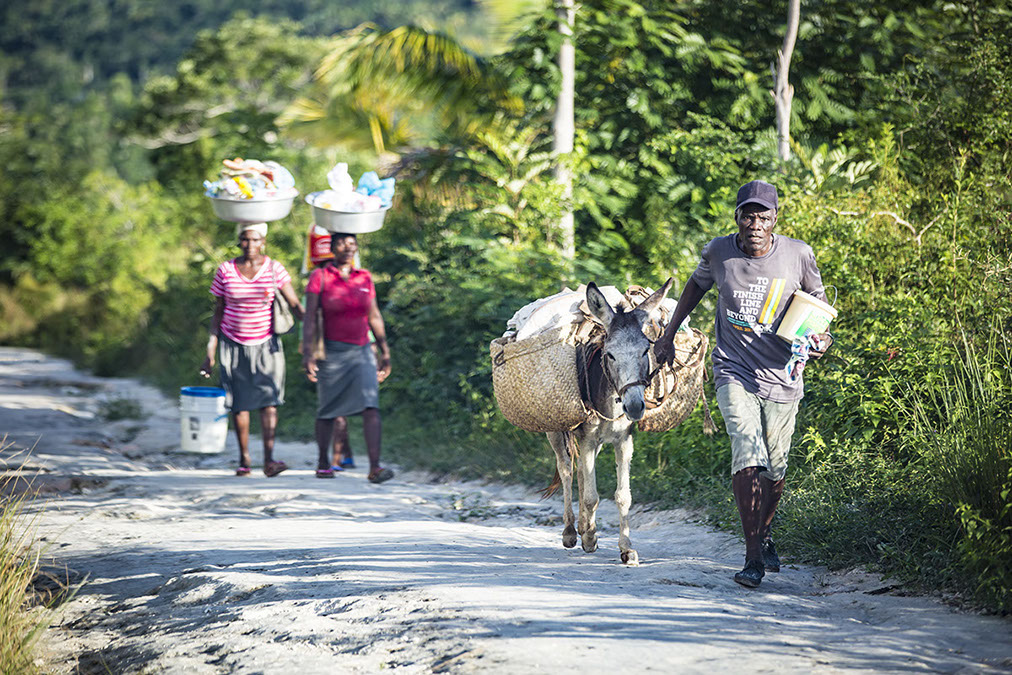Access to Health in Hard-to-Reach Areas
Aug 2021 – Fonkoze’s health program is making considerable strides in remote regions across the country by providing households in these areas access to much-needed health services, products and education. Facilitating mass screenings for malnourished children is one impactful way the organization is addressing critical health issues faced by families with little to no access to healthcare.
Fonkoze aims to screen at least 86,000 children under the age of five and 23,000 pregnant/lactating women; improve access to nutritional products to 4,000,000 people via Fonkoze-empowered Community Health Entrepreneurs in 2021.

New Digital Platform Educates, Addresses the ‘Digital Divide’
The gap or “digital divide” between the disadvantaged (e.g., the poor, disabled) members of society who have little to no access to computers and those who do is wide in many countries, including Haiti. This “divide” increases the risk of vulnerable families becoming even more disconnected from society and the tools needed to break the cycle of poverty, much less advance in life. Fonkoze is addressing this issue with its newly created digital platform, EdTek, which delivers life, business, and financial literacy training via tablets. Currently in its piloting stage, the organization seeks to implement the initiative in 10 branches this year. Until now, the “high-touch” nature of Fonkoze’s education program has hindered its ability to offer classes systematically.
EdTek is made to be a cost-effective and efficient mechanism to deliver Fonkoze’s high-demand program.
With over 40% of Fonkoze’s clients unable to read or write their names because of their limited access to education growing up, the need for the program is great. Incorporating technology into the mix will only help to improve Fonkoze’s ability to empower the people it serves better.
To date, over 183,000 individuals have participated in Fonkoze’s education program, reinforcing the progress they have made through the institution’s microlending programs by building their capacity to effectively deal with external shocks, such as natural disasters and other life-altering challenges.






